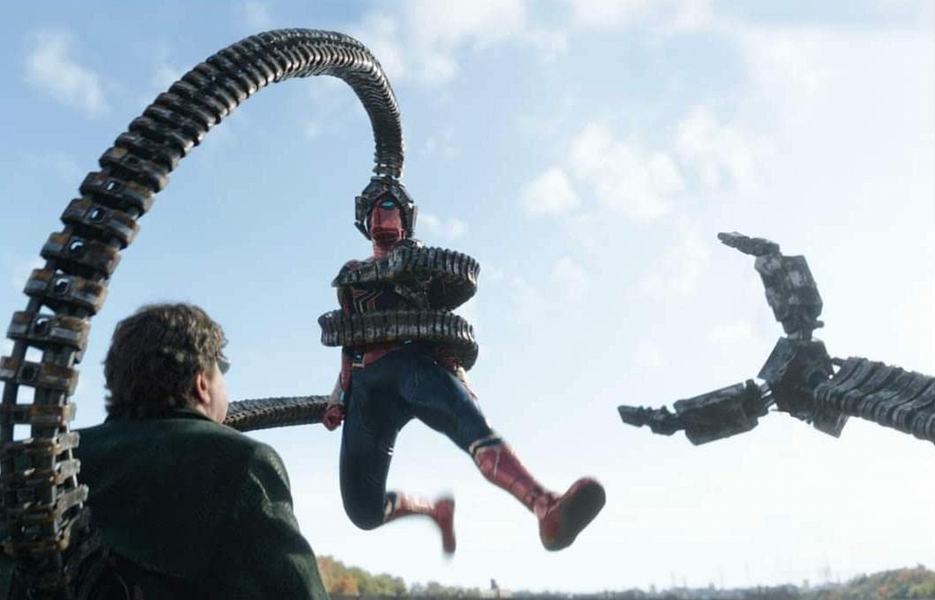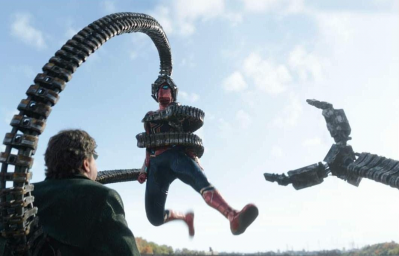Spider-Man’s history on the big screen is almost as messy as his personal life. When Sam Raimi first brought the character to the big screen for Sony in 2002, he revolutionized the superhero genre with a movie that displayed brazen affection for its colorful source material. Before The Dark Knight captivated critics, 2004’s Spider-Man 2 stood at the peak of comic book filmmaking, a monument to the influence of men and women in spandex on popular culture that presaged the success Marvel would enjoy with the creation of its cinematic universe four years later. But in 2007, everything went wrong. Tarnished by studio meddling, Raimi’s Spider-Man 3 was a frustrating mixture of strong character ideas and cornball contrivances that alienated him from the franchise. In 2012, Sony attempted to reboot with The Amazing Spider-Man, but tepid reactions cut the studio’s plans for its own sprawling movie universe short after a single, woefully written sequel was produced. Spidey received a second reboot in 2017 at the hands of director Jon Watts, and has since headlined two further movies while co-starring in Marvel’s Avengers blockbusters.
This context matters, because Spider-Man: No Way Home can’t be understood without it. The web-head’s latest outing is an ineffably entertaining celebration of his cinematic lineage that pays tribute to all the films that preceded it while experimenting with wild new ideas. There are so many surprises in fact that it is challenging to even vaguely describe No Way Home without diminishing its power. In the final scene of its predecessor, Far From Home, Peter Parker (Tom Holland) was unmasked to the world by J. Jonah Jameson—played flawlessly by J.K. Simmons, who reprises the role from Raimi’s trilogy but is now more malicious than comedic. Traditionally a newspaper editor, Jameson has been reimagined as a supplement-hawking Alex Jones parody dedicated to ruining Peter’s life, complete with his own obnoxious talk show and Infowars-style media network. The revelation sends Peter scampering home with his girlfriend, MJ (Zendaya), in an opening sequence marked by a surprising and suitably frenetic musical accompaniment; the only time a pop song appears on the film’s soundtrack until the credits.
When Peter gets back to his apartment, it’s official: The world knows who he is and his life has been transformed. Briefly, at least. The implications of Spider-Man losing his secret identity for the first time on screen aren’t explored as extensively as one might expect, and a certain story thread is dropped altogether after a few intriguing scenes. But the personal challenges the setup creates for Peter, MJ, and friend Ned Leeds (Jacob Batalon) are convincing, and the interactions between them are written and performed effectively enough to avoid the infantile trappings of high school soap operas. After Peter’s newfound infamy deals a particularly crushing blow to the group, he desperately asks Doctor Strange (Benedict Cumberbatch) to cast a spell that will cause the world to forget who Spider-Man is. Predictably, things go horribly wrong. The spell backfires, causing the barriers between universes to fracture. Soon, villains from previous Spidey films begin appearing in Marvel’s newest reality.
To reveal any more from here would be shameful; No Way Home is best experienced with as little prior knowledge as possible. Over the last few months, careful marketing has driven hype and speculation around the movie into a frenzy, with rumors of returning characters growing uncontrollably. Many villains do indeed resurface, and some (Alfred Molina’s Doctor Octopus, Willem Dafoe’s Green Goblin, and Jamie Foxx’s Electro) have already been revealed by teasers and press interviews. Among those three, Molina is clearly enjoying himself, and turns in a wonderfully haughty performance. Foxx is more subdued, but balances the flippant and sinister sides of his character convincingly, redeeming his role in the dismal Amazing Spider-Man 2. Dafoe, meanwhile, is simply phenomenal. Terrifying and vicious, he somehow manages to outdo his original portrayal of the megalomaniacal Goblin, and provides a perfect foil for Holland’s exceptionally well-rounded take on Peter Parker.
Toward the end of its first act, No Way Home becomes gloriously unpredictable. When the universes begin to merge, so many scenes are almost surreal to witness, as if they could only exist in the vivid, hopeful imagination of a child. Much of the excitement is rooted in nostalgia, which has superseded sex as Hollywood’s most lucrative marketing tool in recent years. But although fan service is fundamental to the plot, screenwriters Chris McKenna and Erik Sommers push the characters in unexpected directions, instilling the proceedings with a strong sense of pathos that devotees of the original comics will appreciate. Only occasionally do the nostalgic self-references and memey in-jokes seem forced, and many of the most audience-pleasing exchanges feel entirely natural in their occurrences. Anyone who has ever been even slightly invested in Spidey’s cinematic antics will alternate between grinning fiendishly and gazing in wide-eyed awe throughout the sizable runtime, which seems to evaporate in mere seconds.
No Way Home’s script is rooted firmly in comic book logic. Inconsistencies, conveniences, and incongruous moments that beg explanation can all be found if sought, but the story is constructed with enough precision and joyful creativity that these are easily overlooked. A sweeping orchestral score weaves throughout the film, rich in subtle flourishes and nods to the soundtracks of old. The humor is pleasantly organic and frequently inspired. Most of the jokes hit nicely despite a few strained lines and awkward moments where characters attempt to elevate a thin gag by babbling endlessly around it. The action is exhilarating and varied: a fight in an apartment complex is striking in its visceral brutality, while an inter-dimensional chase scene is sheer grand spectacle. For as busy as the movie can be with characters and emotional conflicts, it remarkably never feels cluttered or unfocused.
In its emotional depth, No Way Home provides a fitting conclusion to an almost 20-year saga. Spider-Man is most compelling as a tragic and isolated character struggling beneath a jovial façade, and his intrinsic grief informs the film’s themes of loss, change, and hardship that are appropriate for such a milestone. Yet the movie is ultimately a life-affirming tribute to a cultural icon that rivals Spider-Man 2 as the most robust exploration of the universal hero captured on screen to date. No Way Home is a pure delight; an antidote to our current malaise that gave me my most enjoyable theater experience in years. See it now, with a large crowd and no spoilers, or live to regret missing out on an event that may never be replicated. Your expectations will be met.






Please note that we at The Dispatch hold ourselves, our work, and our commenters to a higher standard than other places on the internet. We welcome comments that foster genuine debate or discussion—including comments critical of us or our work—but responses that include ad hominem attacks on fellow Dispatch members or are intended to stoke fear and anger may be moderated.
With your membership, you only have the ability to comment on The Morning Dispatch articles. Consider upgrading to join the conversation everywhere.